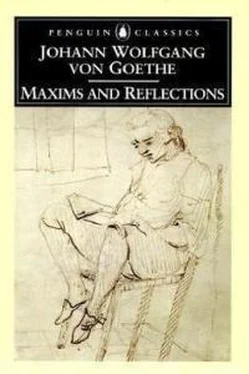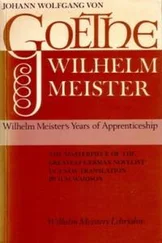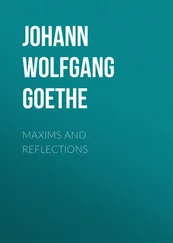141
Life seems so vulgar, so easily content with the commonplace things of every day, and yet it always nurses and cherishes certain higher claims in secret, and looks about for the means of satisfying them.
142
Confidences are strange things. If you listen only to one man, it is possible that he is deceived or mistaken; if you listen to many, they are in a like case; and, generally, you cannot get at the truth at all.
143
No one should desire to live in irregular circumstances; but if by chance a man falls into them, they test his character and show of how much determination he is capable.
144
An honourable man with limited ideas often sees through the rascality of the most cunning jobber.
145
If a man feels no love, he must learn how to flatter; otherwise he will not succeed.
146
Against criticism a man can neither protest nor defend himself; he must act in spite of it, and then criticism will gradually yield to him.
147
The masses cannot dispense with men of ability, and such men are always a burden to them.
148
If a man spreads my failings abroad, he is my master, even though he were my servant.
149
Whether memoirs are written by masters of servants, or by servants of masters, the processes always meet.
150
If you lay duties upon people and give them no rights, you must pay them well.
151
I can promise to be sincere, but not to be impartial.
152
Ingratitude is always a kind of weakness. I have never known men of ability to be ungrateful.
153
We are all so limited that we always think we are right; and so we may conceive of an extraordinary mind which not only errs but has a positive delight in error.
154
It is very rare to find pure and steady activity in the accomplishment of what is good and right. We usually see pedantry trying to keep back, and audacity trying to go on too fast.
155
Word and picture are correlatives which are continually in quest of each other, as is sufficiently evident in the case of metaphors and similes. So from all time what was said or sung inwardly to the ear had to be presented equally to the eye. And so in childish days we see word and picture in continual balance; in the book of the law and in the way of salvation, in the Bible and in the spelling–book. When something was spoken which could not be pictured, and something pictured which could not be spoken, all went well; but mistakes were often made, and a word was used instead of a picture; and thence arose those monsters of symbolical mysticism, which are doubly an evil.
156
For the man of the world a collection of anecdotes and maxims is of the greatest value, if he knows how to intersperse the one in his conversation at fitting moments, and remember the other when a case arises for their application.
157
When you lose interest in anything, you also lose the memory for it.
158
The world is a bell with a crack in it; it rattles, but does not ring.
159
The importunity of young dilettanti must be borne with good–will; for as they grow old they become the truest worshippers of Art and the Master.
160
People have to become really bad before they care for nothing but mischief, and delight in it.
161
Clever people are the best encyclopædia.
162
There are people who make no mistakes because they never wish to do anything worth doing.
163
If I know my relation to myself and the outer world, I call it truth. Every man can have his own peculiar truth; and yet it is always the same.
164
No one is the master of any truly productive energy; and all men must let it work on by itself.
165
A man never understands how anthropomorphic he is.
166
A difference which offers nothing to the understanding is no difference at all.
167
A man cannot live for every one; least of all for those with whom he would not care to live.
168
If a man sets out to study all the laws, he will have no time left to transgress them.
169
Things that are mysterious are not yet miracles.
170
'Converts are not in my good books.'
171
A frivolous impulsive encouragement of problematical talents was a mistake of my early years; and I have never been able to abandon it altogether.
172
I should like to be honest with you, without our falling out; but it will not do. You act wrongly, and fall between two stools; you win no adherents and lose your friends. What is to be the end of it?
173
It is all one whether you are of high or of humble origin. You will always have to pay for your humanity.
174
When I hear people speak of liberal ideas, it is always a wonder to me that men are so readily put off with empty verbiage. An idea cannot be liberal; but it may be potent, vigorous, exclusive, in order to fulfil its mission of being productive. Still less can a concept be liberal; for a concept has quite another mission. Where, however, we must look for liberality, is in the sentiments; and the sentiments are the inner man as he lives and moves. A man's sentiments, however, are rarely liberal, because they proceed directly from him personally, and from his immediate relations and requirements. Further we will not write, and let us apply this test to what we hear every day.
175
If a clever man commits a folly, it is not a small one.
176
There is a poetry without figures of speech, which is a single figure of speech.
177
I went on troubling myself about general ideas until I learnt to understand the particular achievements of the best men.
178
It is only when a man knows little, that he knows anything at all. With knowledge grows doubt.
179
The errors of a man are what make him really lovable.
180
There are men who love their like and seek it; others love their opposite and follow after it.
181
If a man has always let himself think the world as bad as the adversary represents it to be, he must have become a miserable person.
182
Ill–favour and hatred limit the spectator to the surface, even when keen perception is added unto them; but when keen perception unites with good–will and love, it gets at the heart of man and the world; nay, it may hope to reach the highest goal of all.
183
Raw matter is seen by every one; the contents are found only by him who has his eyes about him; and the form is a secret to the majority.
184
We may learn to know the world as we please: it will always retain a bright and a dark side.
185
Error is continually repeating itself in action, and we must unweariedly repeat the truth in word.
186
As in Rome there is, apart from the Romans, a population of statues, so apart from this real world there is a world of illusion, almost more potent, in which most men live.
187
Mankind is like the Red Sea: the staff has scarcely parted the waves asunder, before they flow together again.
188
Thoughts come back; beliefs persist; facts pass by never to return.
189
Of all peoples, the Greeks have dreamt the dream of life the best.
190
We readily bow to antiquity, but not to posterity. It is only a father that does not grudge talent to his son.
191
There is no virtue in subordinating oneself; but there is virtue in descending, and in recognising anything as above us, which is beneath us.
192
The whole art of living consists in giving up existence in order to exist.
193
All our pursuits and actions are a wearying process. Well is it for him who wearies not.
194
Hope is the second soul of the unhappy.
195
Love is a true renovator.
196
Mankind is not without a wish to serve; hence the chivalry of the French is a servitude.
Читать дальше








![Иоганн Гёте - Итальянское путешествие [litres]](/books/398657/iogann-gete-italyanskoe-puteshestvie-litres-thumb.webp)



